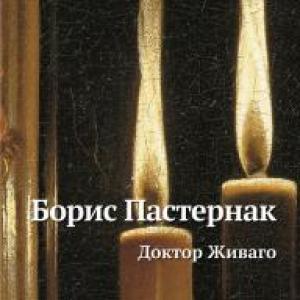You can’t learn English without grammar. Truth or lie? One vocabulary without grammar does not yet make up the language Language without grammar
This modal verb has two forms: may - for the present, might - for the past. The verb may is used to express:
Permissions in affirmative and interrogative sentences.
You may go.
You you can go.
May I help you? Allow can I help you.
Prohibitions in negative sentences.
Assumptions, uncertainties in affirmative and negative sentences.
It may rain today. maybe It will be rain today.
The verb might be used:
In additional clauses in accordance with the rule of the coordination of times.
She said that he might take her book. She said he can take her book.
To indicate the likelihood of an action.
He might come. Is he, may bewill come.
to be allowed to
to be permitted to
Collocations to be allowed and to be permitted + particle infinitive to are synonyms for modal verb may (see paragraph 1).
I am allowed to use this device. To me allowed (i can) use this appliance.
He will be allowed to use this device. His will allow.
must
Verb must used:
To express obligation, the need to take action in the present or future.
I must go. To me need to go.
To express prohibition in a negative sentence.
You mustn "t do it. It is impossible to do this.
To express the likelihood of any action, assumptions.
He must have read this book. Is he, probablyread this book.
You must come and see my new flat. You should come to see our new apartment.
to have (to)
Verb to have (to) used in conjunction with the infinitive with the particle to to express the need to perform an action due to certain circumstances. Corresponds to the Russian "have to, had."
to be + Infinitive
Verb Combination to be with an infinitive is used to express the need to perform an action in accordance with a previous agreement or a predetermined plan. It translates as "should, should," etc.
I was to meet her at 3 o "clock. I should was to meet her at 3 o’clock.
They are to begin this work at once. They are should start work immediately.
Modal verb may (might) used primarily to express permission or opportunity. Like the verb, it has a present tense form may and past tense form might. Consider the basic meanings and characteristics of this common verb.
Table: May / Might modal verb in the affirmative, negative, interrogative form
Verb may (might), like others, is used according to special rules:
- In the affirmative and negative form between may (might) and the verb in does not put the particle to.
- Correctly:You may go. - You can go.
- Wrong: You may to go.
- The verb may does not form a future tense with. In the future tense, the verb may may be replaced by to be allowed to (be allowed, allowed).
- Correctly: You will be allowed to leave. “You can leave.”
- Wrong: You will may leave.
- In the third-person singular form, the verb may (might) does not change.
- Correctly: He \\ She \\ It may.
- Wrong: He \\ She \\ It mays.
- A statement is also constructed according to a special scheme (see table).
May not and might not can be reduced to mayn’t, mightn’t.
Meanings of the modal verb May / Might
General summary of values may / might represented in the image. Read more below.

Modal verb may (might) used by:
1. To express permission or prohibition
In the affirmation, denial and question, the meaning will be different.
1. 1. In the statement
In the affirmative form, the verb may expresses permission.
- You may take what you want. - You you can take whatever you want.
- We may spend our money. - We can spend our money.
Strictly speaking, the verb may, unlike the verb can, it means permission to perform some action, and not physical ability. In Russian, both words are usually translated as “can,” “can,” etc.
- I can eat four slices of pizza ot once. - I can eat 4 slices of pizza at a time (I can physically).
- You may eat whatever you want. - You can
However, in modern colloquial speech, the verb can also often used to resolve:
- You caneat whatever you want. - You can there is everything you want (you are allowed).
1. 2. In question
IN interrogative form verb may used to ask permission.
- May I ask you a question? - Can ask you a question?
- May Can
You can ask the same question with mightbut this will be a very formal question:
- Might I call you by your first name? - Can Do I call you by name?
In colloquial speech, you will most likely never hear him.
As with the statement, in questions like “Can I ...?” In modern colloquial speech, the verb is often used can.
- CanI ask you a question? - Can ask you a question?
- Can I take your phone for a second? - Can take your phone for a second?
Option c may considered more formal, suitable for a formal occasion, and the question is with can - less strict. Often this difference is almost indistinguishable and barely perceptible even by native speakers. But the c might option is definitely a formal question.

Three ways to ask permission.
1. 3. In denial
Negative Verb may expresses a ban.
- You may not park in a fire lane. - to you not allowed parking on the fire drive.
But in colloquial speech more often can’t, implying not a physical possibility, but a ban.
- You can’t sleep on a bench. - It is impossible sleep on the bench.
- You must not smoke in this building. - Forbidden smoke in this building.
Note 1: May or Can?
In statement, question and denial can colloquially can replace may in the meaning of permission or prohibition, but may cannot replace can in the meaning of physical ability or its absence. For example, you want to say that an athlete can physically be able to lift 100 kg.
- Correctly: The athlete can lift 100 kg. - Athlete can lift 100 kg (physically capable).
- Wrong: The athlete maylift 100 kg. - Athlete can lift 100 kg (someone allowed him).
You want to tell a friend that he cannot drink 10 bottles of beer, physically cannot:
- Correctly: You can’t drink 10 bottles of beer. It’s not possible. - You can not to drink 10 bottles of beer is impossible (physically impossible).
- Wrong:You may not drink 10 bottles of beer. You may take only two. - You can not drink 10 bottles of beer, you can take only two (there is no permission to take more).
Note 2: Permission and prohibition in the past tense
Mightalthough it is called the past tense form of the verb mayis not used to express prohibition or permission in. For this purpose, turnover is used. to be allowed to (to be allowed, allowed).
- I was allowed to attend the Small Council meeting. - To me allowed attend a meeting of the Small Council.
- Were you allowed to participate in the game? - to you it could be participate in the game?
Verb might commonly used to express assumptions (see below).
Note 3: The modal verb May in the future tense
Like the modal verb may may relate to, for example:
- You may continue playing later. - You you can continue playing later.
- May I come to see you tomorrow? - Can should i visit you tomorrow?
Alternatively, you can use the turnover to be allowed to in the future tense. However, it is not very suitable for informal speech.
- I will be allowed to continue playing later. - to you will be allowed continue playing later.
2. To express an uncertain assumption
By an uncertain assumption, I mean an assumption, the credibility or reliability of which the speaker doubts. In Russian, words like “maybe,” “maybe,” “maybe,” etc. are used for this. In English, verbs are used. may, might. As in the Russian language, the concept of “uncertain assumption” has blurred boundaries and may imply quite different situations. Consider the main cases.
1. Present or Future Assumption: You may / might know her
Verb is used may or might + verb in indefinite form. For example:
- You may know her. - You, perhapsyou know her.
- Daisy may visit us next weel. - Daisy, may be
Can be used in negative form:
- You may not know her. - You, perhapsYou don’t know her.
If in the same sentences instead may to put might, then the degree of confidence in the assumption will change.
- Daisy mightvisit us next weel. - Daisy, may be, will visit us next week.
They usually say that may expresses firmer confidence. This means that with may the speaker is more confident that Daisy will come, and in the variant with might doubts it very much. However, in practice, the difference in confidence between may and might it can be difficult to catch, a lot depends on the context.
Words - far from always in themselves determine the meaning of a statement. In life, you can say: “I’m sure that everything will work out for us”, but with such intonation that confidence is not observed at all. On the other hand, you can say with a cryptic smile: “Perhaps we will come up with something,” and it will become clear that we will definitely come up with something, there is no doubt about it!
Therefore, we can take as a guideline that assumption with may - more confident than with might, but it should be remembered that in practice everything happens.
2. Past Assumption: You may / might have known her
For the assumption relating to the past tense, a slightly more complex scheme is used: may / might + have +(past participle or, in other words, the third form of the verb).
- You may have seen that horse in the farm. - You, may have seen this horse on the farm.
- We might have misunderstood the professor. - We, probably misunderstood professors.
There is also a difference between may and might in confidence. By default, guess with may more confident than with might.
Note: guess with Can / Could or May / Might?
Assumption can be built not only with may or mightbut also with can or could. The difference will be that in sentences with can / could it is not probability that will be called into question, namely, the physical, real possibility of something.
- Simon could have stolen a wallet from my locker. He has a key. - Simon could steal wallet from my locker. He has a key (Simon had the opportunity to get into the locker).
- Simon may have stolen a wallet from my locker. It wasn’t locked. - Simon could steal wallet from my locker. He was not locked (Anyone, including Simon, could have stolen his wallet because the cabinet was not locked).

Verbs that describe responsibilities, opportunities, desires and the need for action are called modal. They directly convey the speaker’s attitude to what is happening.
Despite the fact that modal verbs are strong and do not need to use an auxiliary verb, when constructing interrogative and negative sentences, they cannot be used independently without a meaningful verb:
I cannot fly. - I can not fly.
You may go. - You can go.
In English, modal verbs are used independently only if they make up a short answer, or the meaning of the statement is clear from the previous context, in which semantic (weak) verbs are used:
- Can you read this?
- I can.
Most people cannot run as fast as animals, but some can.
In English for expression opportunities / impossibilities or ability / disability two modal verbs are most often used - can and may.
They do not change by persons and numbers, as evidenced by the lack of completion -s- in the present simple tense, they do not have all the usual forms for weak verbs (for example, the ending -ing) and do not require the help of an auxiliary verb do / does / did.
Can vs. May
Can and may have meaning in Russian be able / able / allow. It is immediately worth noting that in most cases they are not interchangeable. In the image to the illustration of the article the statement is written:
Do as you may if you can’t do as you could.
In this aphorism, three modal verbs are used at once and all three will have different shades of meaning. The sentence itself is translated as follows:
Do as you are allowed, if you are forbidden to do as you could.
There are certain criteria when choosing a verb.
Can has two forms in English - the present tense and the past tense could, which will also be used in the subjunctive mood.
Nevertheless, in English, it is possible to use the modal verb can in the future tense. In this case, it will be replaced by a verb of equivalent meaning to be able to do smth.
I can read English. - Present Simple
He thought he could do it alone. - Past Simple
I wish I could see it.
He told me he could have seen it earlier. - Perfect
She will be able to finish the painting in Summer.- Future
May used in English in the present tense and past tense might, which can also be found in sentences in the subjunctive mood.
May I come in?- Present Simple
They might come yesterday. - Past Simple
He might be at home. - Subjunctive mood (subjunctive mood)
Can and May
Modal verb can has a wider range of applications compared to the verb may.

1. For expression ability or ability to do something use can:
I can swim. Can you?
2. Can also used to indicate capabilities (theoretical or according to any rules):
You can find it in any dictionary.
Russian Railways can chage the fares seasonally. - Russian Railways may change tariffs depending on the season.
3. When banned for anything used cannot (can’t). You can meet and prohibitions with maybut they will sound too soft:
You cannot talk too loud in the library. “You can't speak loudly in the library.”
You may not talk loudly in the library. - The library is not allowed to speak loudly.
4. Request can be expressed by can or could. The latter in this case will have courtesy:
Can you pass me some butter?
Could you pass me some butter?
5. When expression of surprise in interrogative sentences or reproach the narrative often uses the modal verb can. His form could will reflect the extreme degree of condition:
How can you be so rude?“How can you be so rude?”
You could tell me in the end. “In the end, you could tell me!”
6. Cannot (can’t) used to indicate strong distrust:
She can’t work there. “She can't work there.”
They couldn’t have done it. “They just couldn't do it.”
Please note that in almost all cases of use could, the verb emphasizes exaggerated attitude speaking to events.
In situations where you ask for permission to do something can be used both modal verbs. Offers with may at the same time will sound more formally:
You can come in. - You can come in.
You may came in.- Come in. / You can come in.

Modal verbs may / might embody character speaker uncertainty in relation to the events described. As with could, the past form might transmits high degree of uncertainty:
Somebody’s calling. It may be Mary.- Someone's calling. Maybe this is just Mary.
It may rain. Take an umbrella. - It can start raining. Take the umbrella.
Modal verb may most commonly used when especially courteous:
May I sit down? - Can I sit down? / Let me sit down?
Can I sit down? will rather translate, “May I sit down?”
Often might used in expression reproach. The sentence sounds especially sharp:
You might have told me beforehand. “I could have warned you in advance.”
In this article, we started a big important topic on modal verbs and talked about two of them. In future publications, we will certainly try to highlight the remaining representatives of this category.
We wish you to be able to master this grammar material! May success be with you!
Victoria Tetkina
Vdovina L.A., mathematics teacher at KSU secondary school №7g Aksu,
Pavlodar region
Show the connection between mathematics, the Russian language and literature in mathematics lessons. To consolidate students' knowledge on the topics "Application of the properties of addition and subtraction with natural numbers", "Numeric and alphabetic expressions", "Equations".
Lesson Type: Knowledge Consolidation Lesson
Short description:
A lesson in mathematics together with a lesson in Russian language and literature. These two subjects are very different at first glance, but are closely related to each other. No wonder they said in antiquity, "Without grammar, you can’t learn mathematics." Throughout the lesson, the connection between these subjects is traced.
Subject: “Without grammar, you cannot learn mathematics.”
Lesson objectives:
1. Show the connection between mathematics and the Russian language in a mathematics lesson.
2. To consolidate students' knowledge on the topics: “Application of the properties of addition and subtraction with natural numbers”, “Numeric and alphabetic expressions”, “Equations”. Be able to solve problems on these topics.
3. Develop the logical thinking of students, instill interest in the subject.
4. To educate accuracy, hard work, good breeding.
Equipment:interactive equipment; presentation, posters “Any information in a mathematics lesson has the word”, “Inspiration is needed in mathematics, as in poetry”, “The subject of mathematics is so serious that you should not miss the chance to make it a little entertaining”; Tables cards.
Presentation:“Without grammar, you cannot learn mathematics.”
During the classes.
(The dispute of a teacher of mathematics and the Russian language)
M:There is nothing more important than that science
What people call math.
What can empty sounds give people?
Writing poetry, is that really a job?
R:Nothing worse than boring numbers
Some formulas, lots of zeros.
And the right word? It heals the soul
And in difficult times makes us stronger.
M:Not! The world of numbers rule.
They put our mind in order.
And only mathematicians know the truth,
Like Archimedes, Euclid, Pascal and Jung.
R:There is leaf noise and peace under the clouds.
Dawn. Fog. Autumn inclement weather.
You can’t say with a number everything that you express in words -
And pain, and fear, love and happiness.
M:But the maker taught rockets
And we flew into space without you.
R:Not! The first writer flew into space
The writer is the one who was science fiction.
M:My friend! No quarrels
We will solve this dispute now.
M:Today we have an unusual lesson, a math lesson in conjunction with a Russian language lesson. These two subjects are very different at first glance, but are closely related to each other. No wonder they said in antiquity: “Without grammar, you cannot learn mathematics.” This is the topic of our lesson today. Throughout the lesson, we will trace the connection between these subjects and make this lesson entertaining and interesting.
(Slide 1.2)
R:At first, people learned to speak, much earlier than reading and writing down numbers. We will focus on how we taught literacy in antiquity. Let’s look at this engraving of 1634, which depicts a school in antiquity. (The story of the picture).
Classes also took place in the old Russian school. One crammed the alphabet, the other went to the warehouses, the third read the Book of Hours, and everything had to be learned by heart. Learned each letter by its name.
(Slide 3)
G - verb
D - good
(Talk about the "ABC").
Therefore, many proverbs about grammar. “Az and beeches will save us from boredom”, “Az, beeches, lead - they scare like bears”, “First az and beeches, and then other sciences”, “Alphabet - a step to wisdom.” By the way, the word “alphabet” was formed by the names of the first two letters: "az" and "beeches."
At first, 42 letters were present in the Old Slavonic alphabet. In the 18th century. Tsar Peter the first carried out the reform of the alphabet. Difficult to write letters were replaced, and there were 33 of them.
"How they taught church literacy in the old days."
In the old days, children studied
They were taught by a church clerk.
They came at dawn and repeated the letters like this:
And yes B, like az and beeches,
B - how to lead, G - a verb,
And a teacher for science
On Saturdays they were flogged.
That's such a wonderful science
Our letter was
With such a pen they wrote
From a goose feather!
This knife for no reason
Called pen.
They took their feather
If it wasn’t acute.
Hard letter was given
To our ancestors in the old days,
And the girls were supposed to
Do not learn anything.
Only boys studied.
Clerk with a pointer in his hand
Naraspev read books to them
In the Slavic language.
M:After we learned to read and write, we proceeded to the study of mathematics. Learned to write numbers. The numbers in Russia were designated by the letters of the Old Slavic alphabet. A special sign “~” was called “titlo” above the letters.
(Slide 4)
1 2 3 4 5 6 7 8 9
~ ~ ~ ~ ~ ~ ~ ~ ~
A B D D E S Z I O
Tens of thousands of "darkness." They were designated by circling unit signs.
A - 10,000, - 20,000
Hundreds of thousands were designated as follows.
A - 100000, B - 200000
Million denoted by commas or rays.
M:Guys, what do you see the connection between mathematics and the Russian language?
Report:
“It took a lot of time before people started using the modern numbers 0, 1, 2, 3, 4, 5, 6, 7, 8, 9. These numbers were born in India more than 1,500 years ago. And the Arabs brought these numbers to Europe, that's why they are called Arabic numbers. ”
Here is what S.Ya. Marshak wrote about our numbers.
"One to ten."
Here is one, or one unit,
Very thin as a knitting needle.
But this is the number two.
Admire what:
Bends deuce neck,
A tail drags behind it.
And look at the deuce
Number three stands out.
Three - the third of the badges -
Consists of two hooks.
Three follow four
Sharp elbow protrusion.
And then she went to dance
Number five on paper.
I extended my hand to the right,
Curved her leg abruptly.
Number six door lock:
Above the hook, below the circle.
Here is a seven - poker
She has one leg.
Eight has two rings
Without a beginning and an end.
Number nine, il nine, -
Digital acrobat.
If it gets on your head
The number six will be nine.
A number like the letter O
This is zero, or nothing.
Round zero is so good
But it doesn’t mean anything.
M:Guys, what are the numbers that are written using these numbers?
M: Since the beginning of the year, we have been studying natural numbers and actions with natural numbers. And now let's recall the letter writing of the properties of addition and subtraction.
Continue the following entry:
a + (b + c) \u003d
(a + c) - c \u003d
(a + c) - c \u003d
a - (b + c) \u003d
M:Guys, when completing this task, the connection between the Russian language and mathematics is traced. How many of you will tell me where this connection is?
M:Calculate using the properties of addition and subtraction.
125 + (381 + 375) =
(654 + 289) – 254 =
854 + (249 – 154) =
(747 + 125) – 147 =
937 – (137 + 793) =
(227 + 358) + (127 + 258) =
M: We carry out the next task on the card. Simplify the literal expression by matching the answers with arrows.
(a + 179) - 69 \u003d 600 + a
(256 - a) - 156 \u003d 130 + a
238 - (38 + a) \u003d a + 110
(839 + a) - 239 \u003d 100 - a
(251 + a) - 121 \u003d 200 - a
Physical education.
On charging, the sun raises us-
We raise our hands at the command of "time".
And under us the foliage rustles merrily -
We give up on the command "two."
Gather berries, mushrooms in baskets -
We bend together firmly at the “three” command.
We will ride together on “four” and “five”.
Well, at the “six” command, everyone quietly sat down at their desks.
R:Guys, we learned a lot of proverbs and sayings at the lessons of the Russian language and literature. I’ll call you proverbs right now, and you try to give them mathematical meaning,
calling them one mathematical term.
1. Though a dime a dozen. (In abundance, enough for everyone) (Many)
2. With a gulkin nose. (Gulkin literally means pigeon, pigeon beak) (Few)
3. Two tops from the pot. (Tops - an old measure of length equal to 4.4 cm) (Small)
M:You see, guys, it turns out that the proverbs and sayings have a mathematical meaning. And with the help of what mathematical signs we write the words "little", "many."
M:Now let's do one more task. Compare the numbers by putting the sign “more” or “less”.
70007 * 7007 3 547 547 * 3 547 574
456 * 1 803 524 * 80 352
0 * 124 247 * 395 * 1006
M:To come up with a problem by expression: 180 - y - 95 \u003d and solve it at y \u003d 40; 52.
2nd lesson.
M: Guys, the word carries any information in a math lesson.
With the help of words you answer the question of the problem, we speak the rule. And because, as you say, your answer looks complete or monosyllabic, and your mathematical speech also develops.
Now answer the following questions. What topic did we study in the last lesson?
M:What equality is called an equation?
What number is called the root of the equation?
What does it mean to solve the equation?
How to find an unknown term, diminished, subtracted?
(Slide 5)
Solve the equation: x + 605 \u003d 70; k - 169 \u003d 321; 603 - p \u003d 83
R: Open the math textbook on page 85, find the rule. « When reading equations and letter expressions, remember that the names of the letters x, y, z are masculine, and the names of the remaining Latin letters are of the middle gender. In mathematics, declining letter names is not accepted. ” For example:
X + 605 \u003d 70 - the sum of X and six hundred and five is equal to seventy;
K - 169 \u003d 321 - the difference between ka and one hundred sixty nine is equal to three hundred twenty-one;
M:Even the inhabitants of ancient Babylon and the Egyptians knew many problems whose solution was reduced to solving equations. But these equations were written only verbally. (Slide 6).The French scientist Francois Viet (16th century) first introduced a symbolic notation of the equation: he began to denote unknown quantities by letters. His endeavors in his writings were continued by such scientists as Newton, Descartes, Euler. You will learn more about them in high school.
Now solve the problem using the equation.
(Slide 7).
Task:In search of the Firebird, Ivan Tsarevich walked across the field, then ran 15 kilometers through the forest and 2 kilometers sailed in a boat on the river, spending 38 kilometers on the whole journey. How many kilometers did Ivan Tsarevich walk across the field?
M:Before you solve this problem, Nadezhda Vyacheslavovna came up with her task for you.
R: Guys, we are studying the topic “Noun.” Give a definition of a noun.
How does a noun change?
Find the nouns in the task text and name their grammatical features. Make notes in Russian language notebooks.
In the first sentence of the task text, find the grammatical basis. Remember what it is.
Write the grammatical basis of the sentence in a notebook , graphic design.
M:And now, after you have analyzed this problem from the point of view of the Russian language, we will solve it mathematically. Select keywords. Where did Ivan Tsarevich move?
X km. - across the field
15 km - through the forest
2 km. - down the river
x \u003d 21 Answer: 21 kilometers.
Physical education.
"One" - rose, stretched,
"Two" - bent, straightened,
"Three" - three claps in the hands,
Three nodding heads.
On the "four" - hands wider,
"Five" - \u200b\u200bwave your hands,
"Six" - quietly sit at the desk.
R:Guys, let's have a vocabulary dictation with you and work on the words.
Mathematics, Russian, grammar, equation, alphabet, expression, million, unit, digit, addition, subtraction, decremented, subtracted, root.
We’ll check the spelling of the words, remember the rules, select the test words.
And what can you say about the word “mathematics” from the point of view of the Russian language? What grammatical signs does this word have?
Compose and write down a sentence with the word “math”.
By the way, this word came from the ancient Greek language: "Mantenayn" - so it was pronounced and meant "learn", "acquire knowledge."
Guys, in what two groups can the words of our dictation be divided?
And what words apply to both groups?
We use the words “expression”, “addition”, “root” both in mathematics lessons and in Russian language lessons.
M:And now let us solve these equations in notebooks and see which Russian writer the following words belong to: "Inspiration is needed in mathematics no less than in poetry."
138 + x + 57 \u003d 218
(24 - x) + 37 \u003d 49
248 - (x + 123) \u003d 24
x \u003d 218 x \u003d 12 x \u003d 36 x \u003d 101 x \u003d 23 x \u003d 52
W AND P N K U
Test.
Lesson summary:“Many who have never had the chance to learn more about mathematics consider it a dry science. In essence, this is a science that requires the most imagination, and one of the first mathematicians of our century said quite rightly that one cannot be a mathematician without being at the same time a poet in the soul. ”
(S. Kovalevskaya)
M:Guys, now tell me, is it possible to learn math without a grammar? Why?
Do I need to learn English grammar, or more importantly, just fluently speak it? Today, there are two opposing camps: some believe that you need to speak competently, and for this you need to study grammar first, others insist that you do not need to learn such subtleties in a timely manner, and most importantly, speak English fluently. Which of them is right? How to find a "middle ground" in the study of spoken English? We will give you our arguments and confirm them with a useful video from a native English teacher.
To be or not to be is the question. Should I learn English grammar? Increasingly, people who want to learn English, turn to teachers with requests in style: “I don’t need grammar, I want to speak English, and not spend time learning boring rules. I can quite manage with three simple times. They will understand me, right? Will you undertake to teach me spoken English? ”The reluctance to spend time on boring rules is quite understandable and acceptable, but is it possible to do without knowledge of grammar when talking with foreigners? We propose to consider two diametrically opposing opinions, assess the advantages and disadvantages of each principle of learning English and come to the correct opinion.
Principle No. 1: You need to learn English grammar and only then start to speak it
This principle is classic, it was it that laid the foundation for learning English in schools: first, the children learned the rules and only then (with luck) practiced using them in speech. Moreover, very, very few engaged in conversational practice. Perhaps that is why we now have a generation of silent people: a person can understand that they speak English, but he does not dare to say anything, since no one taught him to SPEAK.
However, this method of training has its advantages: as a rule, the "silent" competently and deftly operate with times and constructions in writing. When writing a proposal, they have time to remember the corresponding rule, write a text and check for possible errors. During a conversation, this lengthy procedure significantly delays the speech, making it insecure, although literate.
Why do I need an English grammar? There is an important plus in its study: you learn to “feel” the English language, you understand the role that a word plays in a sentence, even if it is unfamiliar to you. Ludmila Petrushevskaya has an entertaining collection of “Linguistic Tales”. In it, all words, except for prepositions, are fictitious. However, thanks to an understanding of grammatical rules and the developed “feeling” of the language, we intuitively understand what is at stake. You can read these tales on RuNet and see for yourself on this.
Principle # 2: Why Learn English Grammar? The main thing is to speak it
The principle is modern and very fashionable. It’s not just polyglots that are to blame for its viral spread, as is commonly believed, but those who misinterpret their words. Polyglots are talented people (besides working hard on themselves!), They often say: “I didn’t learn grammar, I just memorized whole phrases, and now I’ll competently operate on them.” Great, right? After a couple of such statements, almost every site considered it necessary to write a “scandalous” article that reveals the “main secret” of learning any foreign language. We will reveal this secret a little later. First, get acquainted with the shortcomings of this principle.
The disadvantage of studying grammar is that a misunderstanding of grammatical constructions entails a misunderstanding of the interlocutor as a whole. And your own speech becomes quite poor, because of the many aspects of the English language (Simple, Perfect, Continuous, Perfect Continuous groups, as well as passive voice) you use only three times of the Simple group. Are you too “cutting back”, impoverishing your English?
Do I need to learn English grammar or is it more important to speak? Looking for a middle ground
We do not support any of the above opinions for two reasons:
- The “First Grammar, Then Speaking” methodology is hopelessly outdated. Modern language courses and online English schools work by a communicative method. That is, you start talking from the first lesson. Grammar is then studied in the context of the topic under consideration. The teacher does not focus on clear rules, but devotes more time to working out grammar in the process of conversational practice. This is the best teaching methodology accepted around the world.
- The method “Main Speaking, Grammar is Unimportant" is also not useful for students of the English language, and, to put it bluntly, it is a failure. We picked up the idea of \u200b\u200bpolyglots that grammar is not necessary to learn, and now we ask our teachers to simplify speech to the level of a child. However, we can say for sure: absolutely ALL polyglot studied grammar, only their approaches were different. We suggest considering them:
- Classical. If the polyglot did not just want to learn how to exchange simple phrases with foreigners, but applied for the position of translator, he did not neglect the usual grammatical aids. A vivid example is the Hungarian polyglot Kato Lomb. This lady mastered 16 languages \u200b\u200band did not disdain the study of grammar exercises. Want to learn languages \u200b\u200blike her? Then check out our article "".
- Modern. Time does not stand still, and now polyglots have slightly changed their approach. You can read a lot of useful information about such people in the article "". Now we recommend that you watch an interesting video. Its author reveals a small secret to learning the language, which polyglotes usually use. You won’t find any special “secrets” in the recording, but the speaker very clearly and clearly explains how not to learn grammar and at the same time ... study it.
As you can see, the “secret” comes down to one of the principles of a communicative technique. When learning English, you don’t need to focus on the rule itself, on its clear wording. Listen more, try to perceive the forms of building sentences by ear. The author of the video believes that grammar should be taught the way children learn to speak - everyone perceives it by ear. This technique is suitable for the native language when the child is constantly in the environment of the language being studied. But how such an approach to the study of grammar is effective for a second foreign language remains a mystery. Therefore, according to the communicative method, students not only listen to the correct grammar, but also use it themselves, coming up with their own examples, using the learned words.
Do not be surprised when those who ignore the rules of grammar also ignore the law. After all, the law is just so much grammar.
Do not be surprised when someone who has ignored grammar rules also ignores the law. In the end, the law is to some extent also a grammar.
Now let's get a few principles of studying the grammar of English "modern":
1. Learn English grammar in practice
Serrated wording of the rules without practical application will only slow down your speech. It is much more useful to read the wording once and compose 10-15-20 sentences using this rule - this is a practical rather than theoretical application of grammar.
2. Listen to and learn from carriers
3. Read books
While reading, you use your visual memory: you see how the sentence is built, what time is used in this or that case, and gradually remember when and what time or grammatical construction to use.
4. Be sure to choose the materials you are interested in.
A fascinating book, video or podcast will completely capture your attention, and you will consciously listen to the recording or read the text. With automatic reading or listening “because you need it”, attention quickly dissipates, so there can be no talk of any grammar study.
5. Use every opportunity to speak English and do not simplify your speech.
Try to adopt 1000 useful English phrases and use them in a conversation with an English-speaking friend, fellow students in an English study group, teacher, etc.
6. Perform written grammar exercises
In addition to speaking, you also need to learn how to write correctly, and this ability develops only when performing grammar exercises. Also, remember that some people don’t speak English because they are afraid to make a mistake. And the written exercise will become your "rehearsal", so talking will not be so scary.
 Literate writing is a must-have of a modern person. In the end, we would like to bring you to the conclusion that the answer to the question “Do I need to learn English grammar?” Can only be affirmative. And you need to learn it correctly: according to a modern technique, using various fascinating and entertaining materials. The words "grammar" and "literate" are related, so you can become a literate person only knowing the grammar. And interesting articles will help to overpower it: "", "".
Literate writing is a must-have of a modern person. In the end, we would like to bring you to the conclusion that the answer to the question “Do I need to learn English grammar?” Can only be affirmative. And you need to learn it correctly: according to a modern technique, using various fascinating and entertaining materials. The words "grammar" and "literate" are related, so you can become a literate person only knowing the grammar. And interesting articles will help to overpower it: "", "".
If you feel confident in all times and constructions, but there are difficulties with speaking, we will be happy to help you "talk" and learn to use all your knowledge in practice. Try signing up for it, after a few lessons you will see that speaking English is easy.







